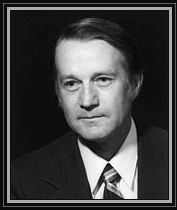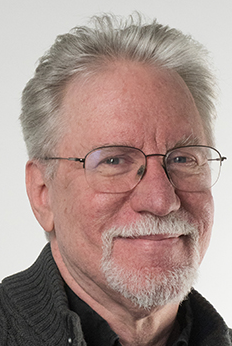Related Research Articles

Rhetoric is the art of persuasion. It is one of the three ancient arts of discourse (trivium) along with grammar and logic/dialectic. As an academic discipline within the humanities, rhetoric aims to study the techniques that speakers or writers use to inform, persuade, and motivate their audiences. Rhetoric also provides heuristics for understanding, discovering, and developing arguments for particular situations.

Rhetoric of science is a body of scholarly literature exploring the notion that the practice of science is a rhetorical activity. It emerged after a number of similarly oriented topics of research and discussion during the late 20th century, including the sociology of scientific knowledge, history of science, and philosophy of science, but it is practiced most typically by rhetoricians in academic departments of English, speech, and communication.
Robert Lee Scott was an American scholar influential in the study of rhetorical theory, criticism of public address, debate, and communication research and practice. He was professor emeritus in the Communication Studies Department at the University of Minnesota. He is the author of five books, numerous articles in speech, communications, philosophy, and rhetoric journals, and contributed many book chapters. His article "On Viewing Rhetoric As Epistemic", is considered one of the most important academic articles written in rhetorical studies in the past century.
John Louis Lucaites is an American academic. He is a professor emeritus of rhetoric and public culture at Indiana University. In 2012, Lucaites was appointed as associate dean for arts and humanities and undergraduate education at Indiana University. His research concerns the general relationship between rhetoric and social theory, and seeks to contribute in particular to the critique and reconstruction of liberalism in contemporary social, political, and cultural practices in the United States.
Rhetorical stance refers to the deliberate choices made by a communicator in shaping and presenting their message. It encompasses the strategic decisions regarding language, style, and tone that are employed to achieve a specific communicative purpose. This concept is deeply rooted in rhetorical theory and is a fundamental aspect of effective communication across various disciplines, including literature, public speaking, and academic writing.

Lloyd Bitzer was an American rhetorician. In 1962, Lloyd Bitzer received his doctorate from the University of Iowa. He held the title of Associate Professor of speech at the University of Wisconsin-Madison in the early 1960s. He continued to be a professor at the institution in the school of Rhetoric, Politics, and Culture until 1994, when he retired. Bitzer was involved with many organizations including the National Communication Association and the National Development Project in Rhetoric. In 1968, Bitzer published his famous theory of situational rhetoric.
Jimmie Wayne Corder was a scholar of rhetoric.
David H. Zarefsky is an American communication scholar with research specialties in rhetorical history and criticism. He is professor emeritus at Northwestern University. He is a past president of the National Communication Association (USA) and the Rhetoric Society of America. Among his publications are six books and over 70 scholarly articles concerned with American public discourse, argumentation, rhetorical criticism, and public speaking are books on the Lincoln-Douglas debates and on the rhetoric of the war on poverty during the Johnson administration. His lectures on argumentation and rhetoric can be heard in a course for The Teaching Company.
Roger D. Duke is an author, theologian, educator, itinerant preacher, and was a professor at several institutions of higher learning including Union University, Baptist College of Health Sciences, Liberty University, Memphis Theological Seminary, and Columbia Evangelical Seminary. Professor Duke also serves as a Consulting Editor for B & H Academic's Studies in Baptist Life and Thought series. He retired in 2016 to focus on a speaking and writing career by forming the Duke Consulting Group.

Theories of rhetoric and composition pedagogy encompass a wide range of interdisciplinary fields centered on the instruction of writing. Noteworthy to the discipline is the influence of classical Ancient Greece and its treatment of rhetoric as a persuasive tool. Derived from the Greek work for public speaking, rhetoric's original concern dealt primarily with the spoken word. In the treatise Rhetoric, Aristotle identifies five Canons of the field of rhetoric: invention, arrangement, style, memory, and delivery. Since its inception in the spoken word, theories of rhetoric and composition have focused primarily on writing
Edwin Benjamin Black was one of the leading scholars of rhetorical criticism. He criticized "Neo-Aristotelianism" for its lacking a larger historical, social, political, and cultural understanding of the text and for its concentrating only on certain limited methods and aspects, such as the Aristotelian modes of rhetoric: ethos, pathos, and logos. He urged critics to analyze both the motives and goals within situated cultural norms and ideologies.
Everett L. Worthington Jr. is a licensed clinical psychologist and Professor of Psychology at Virginia Commonwealth University (VCU). His research interests include forgiveness and other virtues, religion and spirituality in clinical practice, and the hope-focused approach to counseling couples. He has written over 30 books on topics including forgiveness of others, self-forgiveness, character strength, religion and psychology, and couples' therapy, and he has published over 350 scholarly articles and chapters. Worthington has been frequently cited as an expert on his topics of interest in the scientific literature and public media.
Harold G. Barrett is an American Emeritus Professor of Speech Communication at California State University. He is also a writer rhetorician on the subject of ethics and civility in communication.

Anthony Edward Schiappa, Jr. is an American scholar of communication and rhetoric, currently Professor of Comparative Media Studies/Writing at the Massachusetts Institute of Technology, where he holds the John E. Burchard Chair of Humanities; from 2013 to 2019, he also served as the program's Head. Previously, he spent seventeen years in the Communication Studies Department at the University of Minnesota, the last seven of which he served as chair. He is the author of eight books and numerous articles that have appeared in classics, communication, English/Composition, philosophy, psychology, and law journals.
Susan Zaeske is Professor of Rhetoric and Public Culture in the Department of Communication Arts and Arts and was formerly Associate Dean for Arts and Humanities in the College of Letters & Science at the University of Wisconsin-Madison.
Gerard Alan Hauser is an author and academic, and professor emeritus of communication and college professor emeritus of distinction in rhetoric at the University of Colorado Boulder. His research focuses on the interaction between formal and vernacular rhetorics in the public sphere. He has authored several books and numerous articles on the subject, and his writings have helped shaped the field of modern rhetoric.
Michael Hyde is an American linguist, currently a University Distinguished Professor at Wake Forest University. He received a Distinguished Scholar Award in 2013 from the National Communication Association, and in 2019 he won the Association's Communication Ethics Top Book Award for his 2018 book The Interruption that We Are: The Health of the Lived Body, Narrative, and Public Moral Argument.

Feminist rhetoric emphasizes the narratives of all demographics, including women and other marginalized groups, into the consideration or practice of rhetoric. Feminist rhetoric does not focus exclusively on the rhetoric of women or feminists, but instead prioritizes the feminist principles of inclusivity, community, and equality over the classic, patriarchal model of persuasion that ultimately separates people from their own experience. Seen as the act of producing or the study of feminist discourses, feminist rhetoric emphasizes and supports the lived experiences and histories of all human beings in all manner of experiences. It also redefines traditional delivery sites to include non-traditional locations such as demonstrations, letter writing, and digital processes, and alternative practices such as rhetorical listening and productive silence. According to author and rhetorical feminist Cheryl Glenn in her book Rhetorical Feminism and This Thing Called Hope (2018), "rhetorical feminism is a set of tactics that multiplies rhetorical opportunities in terms of who counts as a rhetor, who can inhabit an audience, and what those audiences can do." Rhetorical feminism is a strategy that counters traditional forms of rhetoric, favoring dialogue over monologue and seeking to redefine the way audiences view rhetorical appeals.
James Louis Kinneavy was an American scholar and teacher of rhetoric and composition. Since the publication of his best-known work, A Theory of Discourse, he has been widely considered “one of America's major rhetorical theorists.” The book's main contribution to the field of contemporary discourse is the case Kinneavy made for the importance of rhetoric throughout Western history. He authored seven books and over thirty articles on rhetorical theory and composition pedagogy, and his work has been the “cornerstone of dozens of textbooks on composition, many university and college programs, and entire state language arts programs.” Throughout his career, Kinneavy was heavily involved with teaching, working with the Texas Department of Education and as a consultant to school districts in Texas and other states.

Carolyn Rae Miller is SAS Institute Distinguished Professor of Rhetoric and Technical Communication Emerita at North Carolina State University. In 2006 she won the Rigo Award for Lifetime Achievement in Communication Design from the ACM-SIGDOC and in 2016 the Cheryl Geisler Award for Outstanding Mentor, the Rhetoric Society of America. She is a Fellow of the Association of Teachers of Technical Writing (1995) and of the Rhetoric Society of America (2010). Her “groundbreaking and influential article” on “Genre as Social Action” is foundational for Rhetorical Genre Studies. Three of her articles have been identified as essential works in Technical Communication.
References
- ↑ "Communication Department". 6 May 2014.
- ↑ "The Making of the New Spirituality (Out-of-print edition) - InterVarsity Press". Archived from the original on 2016-03-03. Retrieved 2014-10-08.
- ↑ "Communication Department" (PDF). 6 May 2014.
- ↑ "Communication Department" (PDF). 6 May 2014.
- ↑ "Communication Department". 6 May 2014.
- ↑ "Communication Department" (PDF). 6 May 2014.
- ↑ "Communication Department" (PDF). 6 May 2014.
- ↑ James A. Herrick, The History and Theory of Rhetoric: An Introduction, 3rd edition, p. 7
- ↑ see ref #8
- ↑ Herrick, James A. (1997). The Radical Rhetoric of the English Deists: The Discourse of Skepticism, 1680-1750. Univ of South Carolina Press. ISBN 9781570031663.
- ↑ Herrick, James A. (2004-12-02). The Making of the New Spirituality: The Eclipse of the Western Religious Tradition. InterVarsity Press. ISBN 9780830832798.